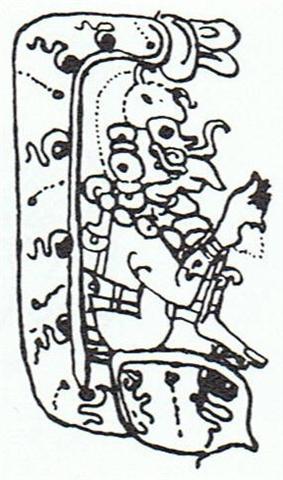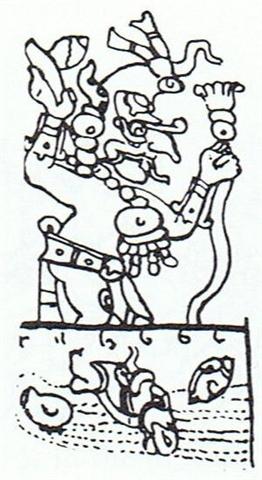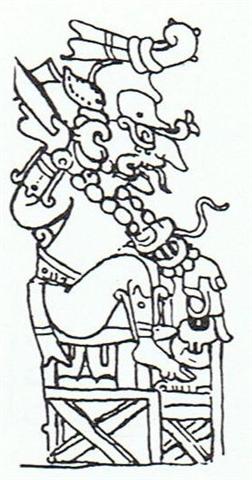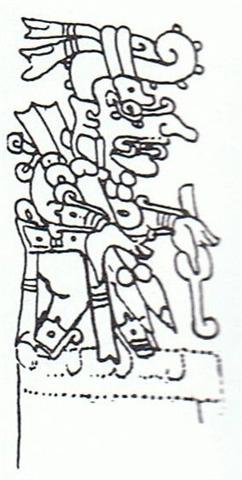3. In Hamlet's Mill we can find confirmation of our ideas: 'The medieval Dutch poem of Brandaen ... contains a very remarkable feature: Brandaen met on the sea a man of thumb size, floating upon a leaf, holding in his right hand a small bowl, in the left hand a stylus; the stylus he kept dipping into the sea and letting water drip from it into the bowl; when the bowl was full, he emptied it out, and began filling it again. It was imposed on him, he said, to measure the sea until Judgment-day.' The particular kind of 'instrument' seems to reveal the surveyor in charge in this special case. Mercury was the celestial scribe and guardian of the files and records, 'and he was the inventor of many arts, such as arithmetic and calculation and geometry and astronomy and draughts and dice, but his great discovery was the use of letters', as Plato has it (Phaedrus 274). It remains to be seen whether or not all the measuring planets can be recognized by their particular methods of doing the measuring. It is know how Saturn does it, and Jupiter. Jupiter 'throws', and Saturn 'falls'. The implement of the Rain God should depend on which planet is ruling. Mercury is number 1 beyond midsummer and Rain God as Mercury is empty-handed because his 'stick' is at his back. Then Jupiter and Venus should follow, but the hewing gesture of the figure sitting in position 3 suggests it is not Venus but rather Saturn:
Furthermore, in the Saturn station the Rain God is sitting on a pedestal with a night sign (Akbal):
But this does not make sense, because wading in the sea surely must be the station of Venus (rather than Jupiter):
The double faces (morning star and evening star) of Venus could motivate a horizontal division in 2 parts of the picture. And if the double faces of Venus is illustrated in such a way, then Moon should be ruling station number 2, because here the Rain God is 'wading in air', the same type of sign but with air instead of water in the bottom part. In the Venus station the Rain God is hewing because that is necessary in order to recover some of the force of life (Sun) lost down in the earth in the preceding station: 'By striking the anvil,' said OgotemmÍli, 'they get back from the earth some of the life-force they gave it. Their blows recover it.' But blows on the iron must be dealt by day. The smith's work is day labour, no doubt because the smithy fire, being a fragment of the sun, could not shine at night ... In the Moon station the Rain God is not hewing because here he is on his way down from the sky, on the way down to earth. |




